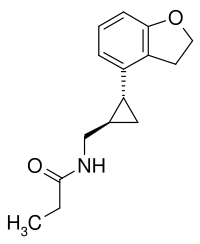 Ever since the introduction of East-West passenger flights, particularly long-haul, a phenomenon known as desynchronosis arose. It’s better known to you and me as jet lag and occurs due to the fast transition over time zones without giving the body chance to get accustomed. This results in an altered circadian rhythm and can lead to headaches, fatigue, insomnia and depression. Many frequent flyers have their own methods of reducing the impact as much as possible, including water-timing, eating a particular meal before the flight, fasting before the flight, timing sleep on the plane etc. Another trick is to use melatonin once you arrive at your destination. Produced by the pineal gland, melatonin regulates the body’s sleep-wake cycle and many swear by dosing in a progressively lower dosing to get over jet lag. It is generally recommended to use 1mg of melatonin for every hour of time you have lost/gained on the first night and then for every night thereafter reduce by 1mg. While effective for many, this strategy still takes days and possibly weeks to remedy.
Ever since the introduction of East-West passenger flights, particularly long-haul, a phenomenon known as desynchronosis arose. It’s better known to you and me as jet lag and occurs due to the fast transition over time zones without giving the body chance to get accustomed. This results in an altered circadian rhythm and can lead to headaches, fatigue, insomnia and depression. Many frequent flyers have their own methods of reducing the impact as much as possible, including water-timing, eating a particular meal before the flight, fasting before the flight, timing sleep on the plane etc. Another trick is to use melatonin once you arrive at your destination. Produced by the pineal gland, melatonin regulates the body’s sleep-wake cycle and many swear by dosing in a progressively lower dosing to get over jet lag. It is generally recommended to use 1mg of melatonin for every hour of time you have lost/gained on the first night and then for every night thereafter reduce by 1mg. While effective for many, this strategy still takes days and possibly weeks to remedy.
A new insomnia drug called Tasimelteon has recently completed its Phase III trials with success. What the researchers also found was that Tasimelteon was even effective when the user’s sleeping pattern was drastically affected. Normal night sleepers (11pm until 7am) were able to get improved sleep latency, increased sleep efficiency and better sleep maintenance despite the shift, effectively shifting their body clocks. This suggests that Tasimelteon can potentially eradicate the jet lag condition and may become somewhat of a god-send for night-shift workers trying to live normal lives at normal social hours.
The drug works by activating the two melatonin receptors found in humans, MT1 and MT2. By working so selectively in the brain, the drug is able to affect the sleep-wake cycle effectively side effect free. An even newer study shows that Tasimelteon does not impair next-day functioning or develop dependence. Researchers next want to look into toxicological data in order to assess long-term use.
Source(s)
Rajaratnam SM, Polymeropoulos MH, Fisher DM, Roth T, Scott C, Birznieks G, Klerman EB. Melatonin agonist tasimelteon (VEC-162) for transient insomnia after sleep-time shift: two randomised controlled multicentre trials. Lancet. 2009 Feb 7;373(9662):482-91.
Hardeland R. Tasimelteon, a melatonin agonist for the treatment of insomnia and circadian rhythm sleep disorders. Curr Opin Investig Drugs. 2009 Jul;10(7):691-701.
